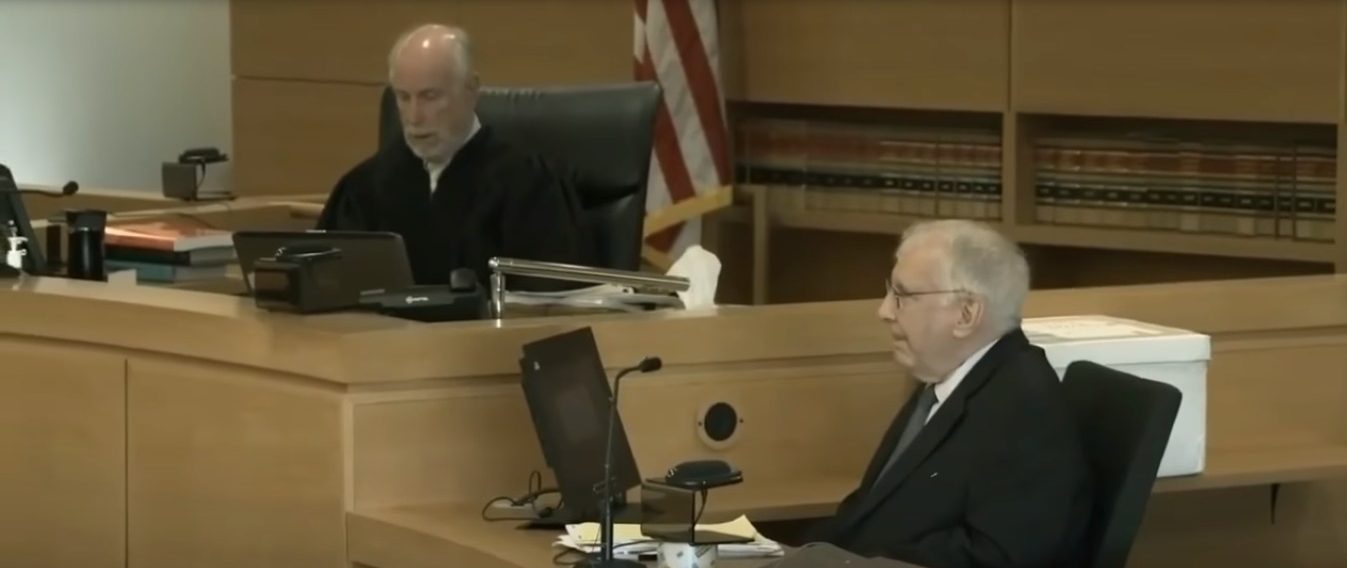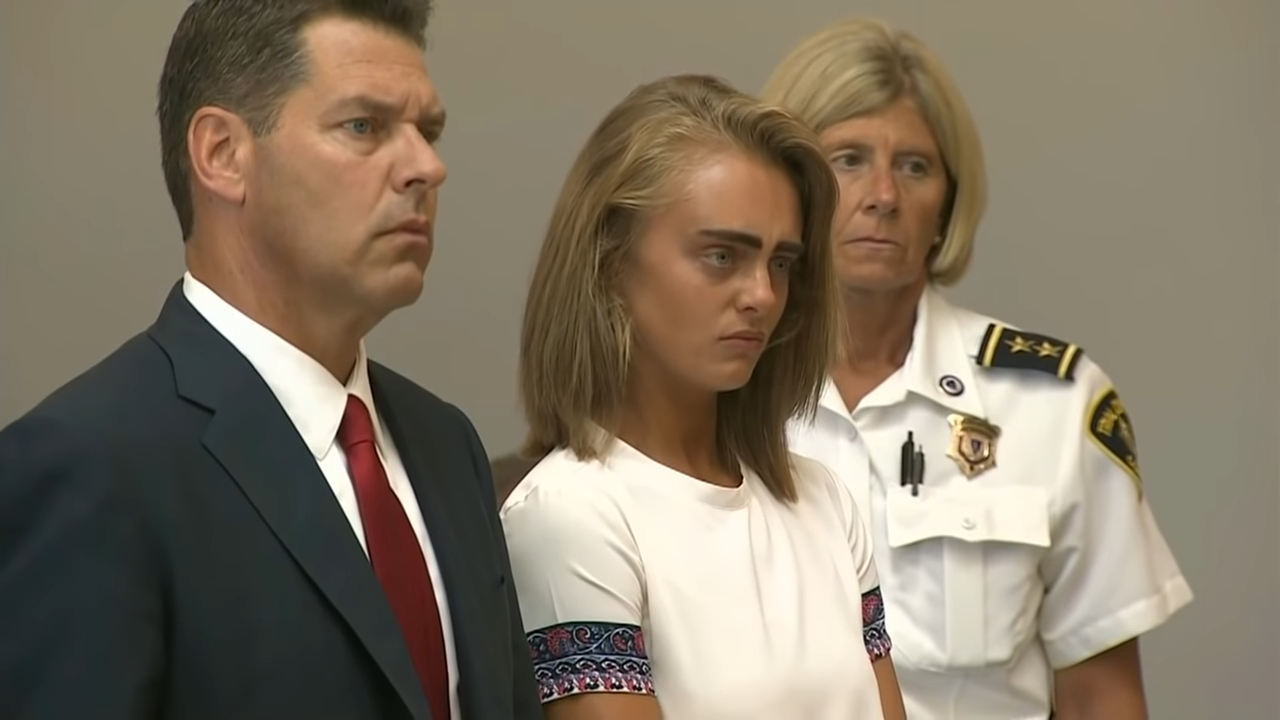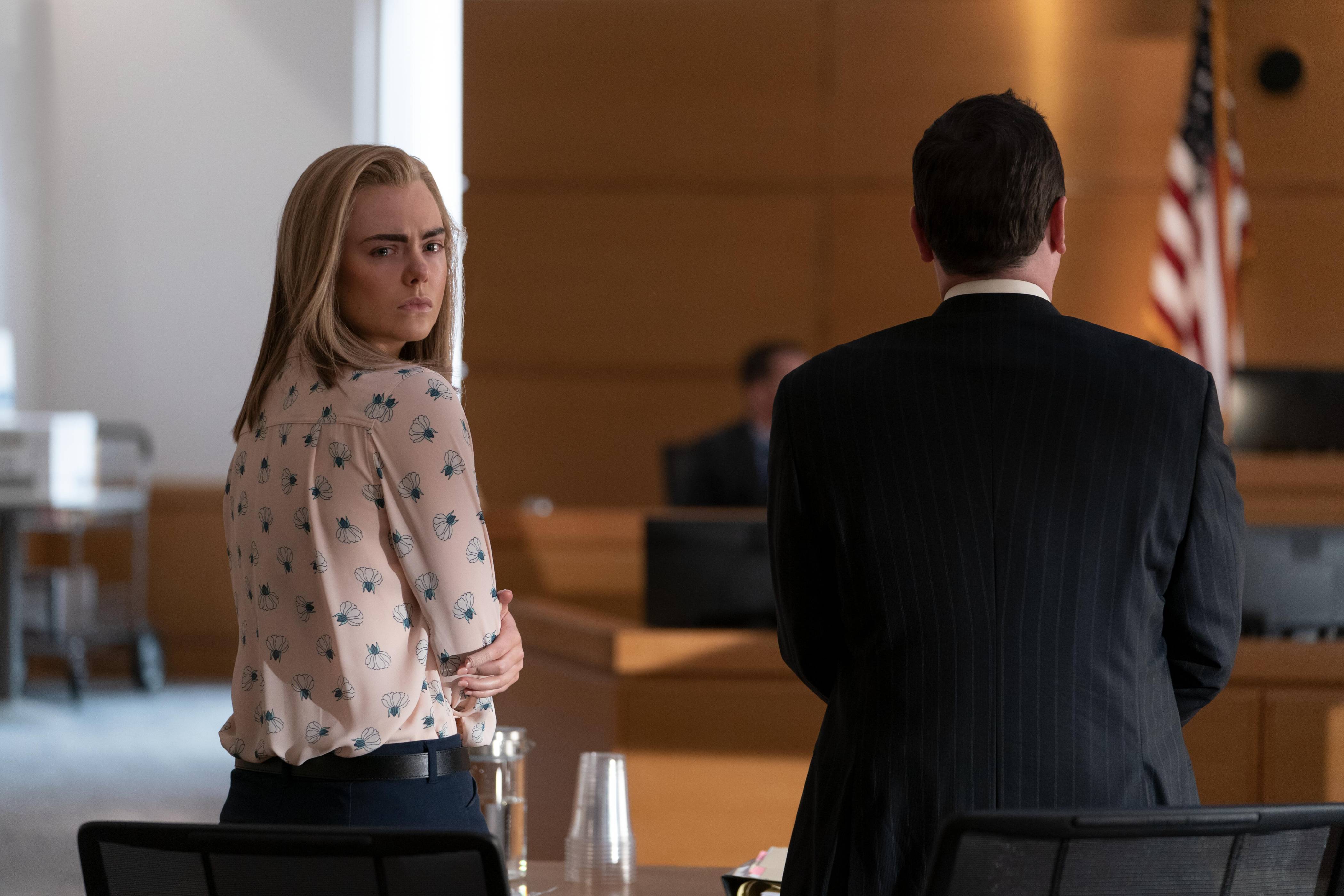‘The Girl from Plainville‘ delves into the story of Conrady Roy III’s death and the role played by his girlfriend, Michelle Carter, in the tragedy. The Hulu miniseries depicts how the two teenagers’ relationship evolves and the subsequent trial against Michelle when text messages between her and Conrad are discovered.
Faced with an involuntary manslaughter charge, Michelle’s defense brings in Dr. Peter Breggin, an expert witness, to prove Michelle’s innocence. The doctor’s testimony, though convincing at first, remains highly disputed. In fact, a disclaimer before episode 7 states as much. Here’s what you need to know about Dr. Peter Breggin’s actual testimony.
What Was Dr. Breggin’s Testimony?
Michelle Carter’s trial centered around a charge of involuntary manslaughter against her, with the defense claiming that Michelle urged Conrad to commit suicide through text messages and phone calls. If found guilty, the 20-year-old faced a prison sentence of as much as twenty years.

Dr. Peter Breggin, a witness for the defense, has testified in multiple trials as an expert witness. As seen on the show, he focuses on the effects of selective serotonin reuptake inhibitors (SSRI) medications like Celexa on the behavior of people. In his testimony, Dr. Breggin stated that Michelle had been taking Prozac for years, and switching to Celexa made her “intoxicated” and unable to form a clear intent.
Due to what he referred to as “involuntary intoxication,” the doctor informed the court and Judge Lawrence Moniz that Michelle actually thought she was helping Conrad get what he wanted. Michelle was 17 at the time of Conrad’s death, and Dr. Breggin also pointed out that the adolescent brain is “more susceptible to harm and all intrusions.”
Though he had never treated Michelle, Dr. Breggin said his testimony was based on him going through Michelle’s school records and text messages as well as interviews with multiple people who know her. The psychiatric expert witness also stated that Michelle initially tried to help Conrad at an earlier time (during the latter’s attempted suicide in 2012). However, the medication, Celexa, subsequently had a severe psychological effect on her and even triggered disturbing nightmares.
Why Was Dr. Breggin’s Testimony Disputed?
The prosecution in Michelle Carter’s case, led by Assistant District Attorney Katie Rayburn, brought up a few points of contention against Dr. Breggin’s testimony. It was noted that “involuntary intoxication” is a legal term, as opposed to being a technical, medical diagnosis. During questioning, Dr. Breggin also revised his timeline as well as the crucial date of July 2, 2014, which was supposedly when Michelle Carter suffered from involuntary intoxication.

Countering Dr. Breggin’s diagnosis of intoxication, the prosecution also claimed that Michelle was never actually “transformed.” Instead, it was put forward that the text messages that were seen in evidence allegedly portrayed her to be “manipulative, coercive, and craving attention. Finally, it was also brought up that Dr. Breggin, after previously diagnosing Michelle as mentally stable, changed his diagnosis to anxiety and depression a few weeks before the trial.
Dr. Breggin has testified as an expert witness in over a dozen trials and has been noted for his criticism of antidepressants and other prescription drugs in psychiatry. His comments have been occasionally met with skepticism and sometimes with success. In a 2011 case, a judge agreed with Dr. Breggin that Prozac had influenced a teenager to kill. However, there have also been cases where Dr. Breggin’s comments were dismissed. Ultimately, Michelle Carter was charged with involuntary manslaughter and sentenced to 2 1/2 years in prison, with 15 months served and the rest suspended.
Read More: Is Cassie Wilkins Based on Michelle Carter’s Real Schoolmate?


You must be logged in to post a comment.